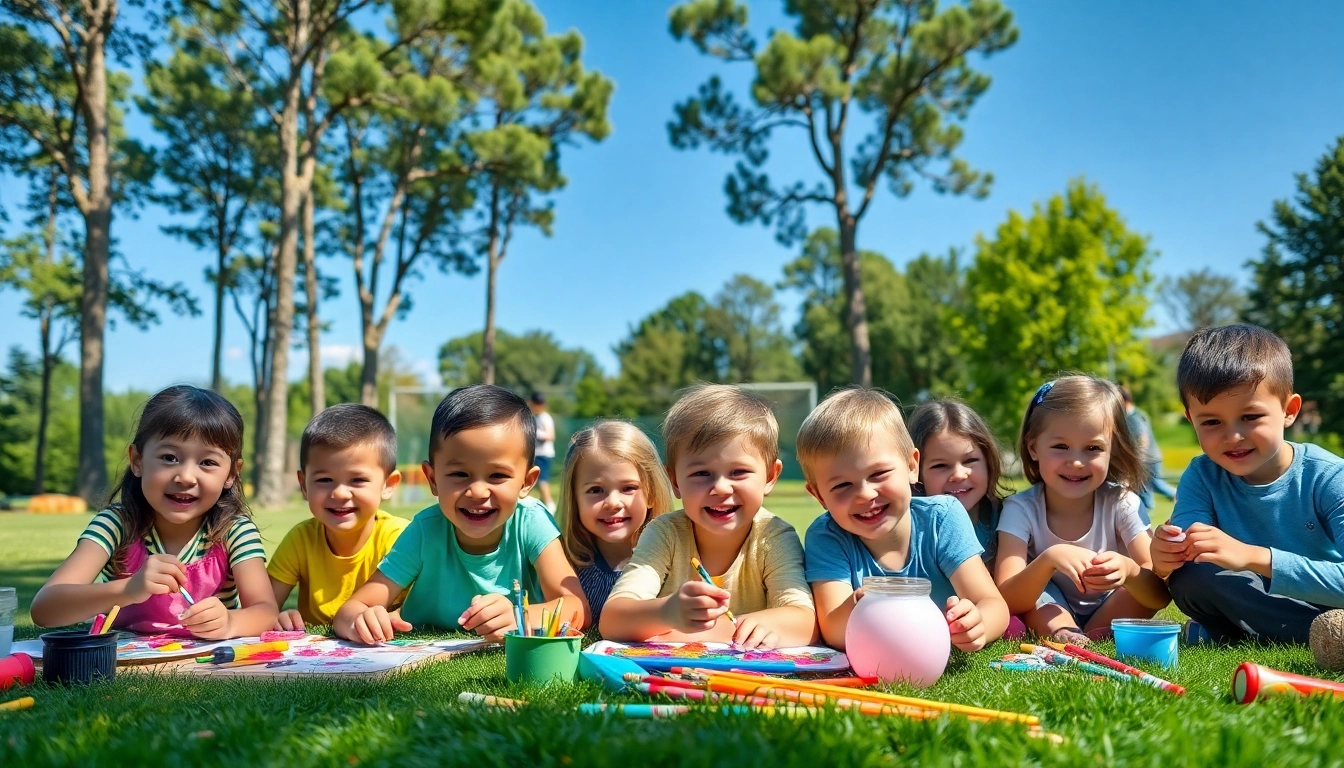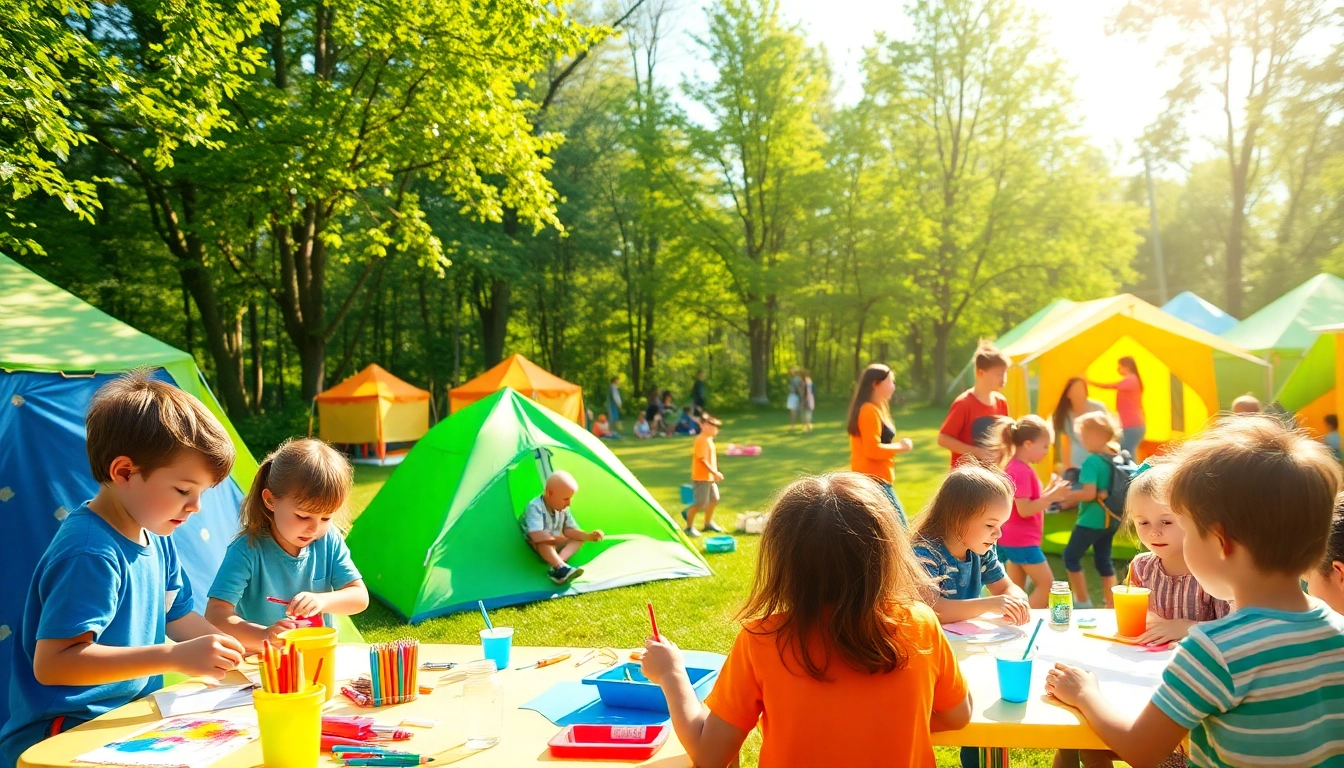
Understanding the Concept of Holiday Camps
What Are Holiday Camps?
Holiday camps are unique environments designed primarily for children, offering a structured set of activities during school breaks. They serve as both a form of educational enrichment and entertainment, allowing children to explore new skills in a communal and secure atmosphere. Programs vary widely but frequently involve sports, arts and crafts, nature exploration, and themed workshops. Attending holiday camps can foster personal engagements, friendships, and new interests that children may not easily access in their everyday environment.
History and Evolution of Holiday Camps
The concept of holiday camps emerged prominently in the early 20th century, initially in the United Kingdom, where children from urban areas could experience the countryside. These camps were originally aimed at the working-class population, providing children with an escape from the crowded city life, a chance to experience nature, and a structured means of learning new skills. Over the decades, the format and offerings of holiday camps have evolved significantly. Today, they encompass a range of themes, including sports, arts, technology, and environmental education, designed to match modern children’s interests and educational goals.
Types of Holiday Camps Available
Various types of holiday camps cater to diverse interests and age groups:
- Traditional Summer Camps: These camps often provide a mix of sports, arts and crafts, and nature activities.
- Specialized Camps: Focusing on specific themes such as science, technology, performing arts, or sports, these camps enable children to focus intensely on their interests.
- Day Camps: Typically structured around a flexible daily schedule, these camps allow children to attend during the day while returning home in the evenings.
- Overnight Camps: These camps provide a longer experience where children stay overnight, allowing for more immersive activities and social interactions.
Benefits of Attending Holiday Camps for Children
Social and Emotional Development
One of the most significant benefits of holiday camps is the opportunities they provide for social interaction. Children meet peers from various backgrounds, which promotes inclusivity and understanding. Activities often require teamwork, allowing campers to develop communication and conflict-resolution skills. Building friendships in a non-competitive, supportive environment lays the groundwork for social confidence and emotional growth.
Physical Activity and Health Benefits
Physical activity is paramount in holiday camps. Activities such as swimming, hiking, and organized sports promote cardiovascular health and improve physical fitness. Additionally, engaging in outdoor activities has mental health benefits; studies indicate that time spent outdoors can reduce symptoms of anxiety and depression.
Creative Skills and Personal Growth
Enrichment through creative outlets like arts and crafts, drama, and music is frequently a highlight of holiday camps. These activities not only help in developing fine motor skills but also foster a sense of accomplishment and self-esteem. Completing a craft or putting on a play imbues children with the confidence to express themselves creatively, which is crucial for their personal development.
Popular Activities at Holiday Camps
Arts and Crafts: Unleashing Creativity
Arts and crafts serve as a cornerstone of many holiday camps. Activities can range from painting and drawing to more specialized crafts like pottery or jewelry making. These creative sessions enable children to explore their artistic talents while allowing for emotional expression and relaxation. Moreover, participating in group crafts can enhance collaboration skills.
Sports and Outdoor Adventures
Sports are essential for physical development and team-building. Camps often introduce a variety of sports such as soccer, basketball, and swimming, allowing children to discover their interests and talents. Outdoor adventures, including hiking and nature walks, teach children about the environment and encourage teamwork and problem-solving skills through exploration and challenges.
Educational Programs and Workshops
In addition to leisure activities, many holiday camps include educational components that promote learning in a fun, engaging manner. Workshops on science, technology, and environmental conservation teach children valuable skills while sparking curiosity about the world around them. By integrating education with recreation, these camps create a balanced environment for holistic development.
Choosing the Right Holiday Camp
Factors to Consider When Selecting a Camp
Selecting the right holiday camp for your child requires careful consideration. Factors to evaluate include:
- Age Appropriateness: Ensuring that the camp offers programs suitable for your child’s age is essential.
- Interests: Assessing your child’s preferences can help identify camps that align with their passions, enhancing their chances of enjoying the experience.
- Safety Standards: Researching the camp’s safety protocols is critical. Look for camps with certified staff and robust emergency plans.
- Location: Proximity to home, as well as the camp’s environment (urban vs. rural), can also affect the experience.
Top Rated Holiday Camps in the UK
While there are numerous holiday camps across the UK, some stand out for their exemplary programs and positive reviews:
- Camp Wilderness: Known for its outdoor adventure programs tailored for young explorers.
- Art & Design Camp: Focuses on nurturing creativity through specialized arts programs.
- Sports Academy Camps: Offers a range of sport-specific training and competition opportunities.
- STEM Camp: Engages children in science, technology, engineering, and math through hands-on projects.
How to Prepare for Your Camp Adventure
Preparation is key to ensure a smooth start to your child’s camp experience. Here’s how you can help:
- Pack Smart: Create a checklist of essential items, including clothing, toiletries, and any specific gear recommended by the camp.
- Discuss What to Expect: Have open conversations about the camp schedule, activities, and the importance of being friendly and respectful.
- Encourage Independence: Involve your child in packing and preparing to boost their confidence and self-reliance.
Tips for a Successful Holiday Camp Experience
Encouraging Friendships and Social Interaction
Encouraging your child to engage with peers at camp can foster deeper connections. Discuss the importance of inclusivity and kindness. You might suggest they introduce themselves to others and participate in team activities, allowing them to form friendships that may last beyond the camp.
Staying Safe and Healthy at Camp
Safety should always be a priority. Ensure that your child understands basic safety protocols, including the importance of following camp rules and staying within designated areas. Discuss healthy habits, such as staying hydrated and following dietary guidelines, to promote overall wellness while participating in camp activities.
Making the Most of the Holiday Camp Experience
Maximizing the camp experience requires an open mindset. Encourage your child to try new things, whether it’s a new sport or a craft they haven’t attempted before. Emphasizing a positive attitude towards challenges and new experiences can transform their camp experience into memorable adventures.







